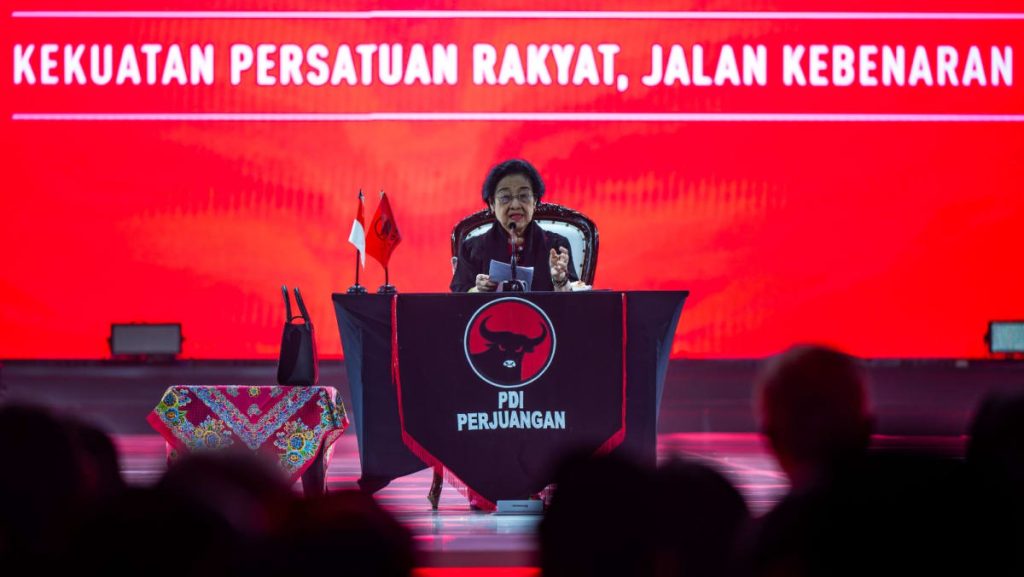Political observers have noted that Indonesian Democratic Party of Struggle (PDI-P) leader Megawati Soekarnoputri’s reluctance to declare the party as part of the opposition may be due to the fact that PDI-P still has representatives in the outgoing government. Agung Baskoro of Trias Politika Strategis suggested that it would not be wise to declare opposition status while PDI-P ministers are still part of the ruling establishment. Another observer, Ray Rangkuti, interpreted Megawati’s statement as a clear indication that PDI-P is likely to remain outside the coalition and could potentially be one of the only opposition parties.
At the conclusion of a three-day meeting, PDI-P issued a 17-point recommendation that included highlighting the 2024 election as the worst in Indonesian democracy’s history. The party also hinted at only cooperating with other parties that are committed to implementing reforms and strengthening democracy in the country. Ujang Komaruddin from Al Azhar University echoed the sentiment that PDI-P seems inclined towards remaining in the opposition, which he believes can provide necessary checks and balances against the ruling establishment.
Despite some individual declarations, such as Ganjar Pranowo stating that he would not join the new government, there has not been an official position taken by PDI-P regarding their stance. Agung Baskoro noted that this ambiguity may be characteristic of Megawati’s preference to first express her personal views before the party takes an official position. The timing of the announcement may also be strategic, as it allows for informal communication and maneuvering before the new government is inaugurated in October.
Political analyst Agung Baskoro mentioned that the situation might become clearer once Prabowo Subianto is inaugurated after October 20th, shedding light on PDI-P’s role in the new government. Ray Rangkuti suggested that PDI-P’s readiness to be in the opposition, as indicated by Megawati’s speech, could result in the party being outside the government. This stance aligns with their history of being vocal critics when not part of the ruling establishment, providing an important role in holding the government accountable through checks and balances.
Overall, the indication from various political observers is that PDI-P is leaning towards staying in the opposition, maintaining its role as a critical voice in Indonesian politics. While individual members may have expressed personal stances on joining the new government, the party as a whole has yet to make an official declaration. This strategic ambiguity may allow for flexibility in future negotiations and alliances, ensuring that PDI-P’s positioning remains fluid until the new government is officially formed.


